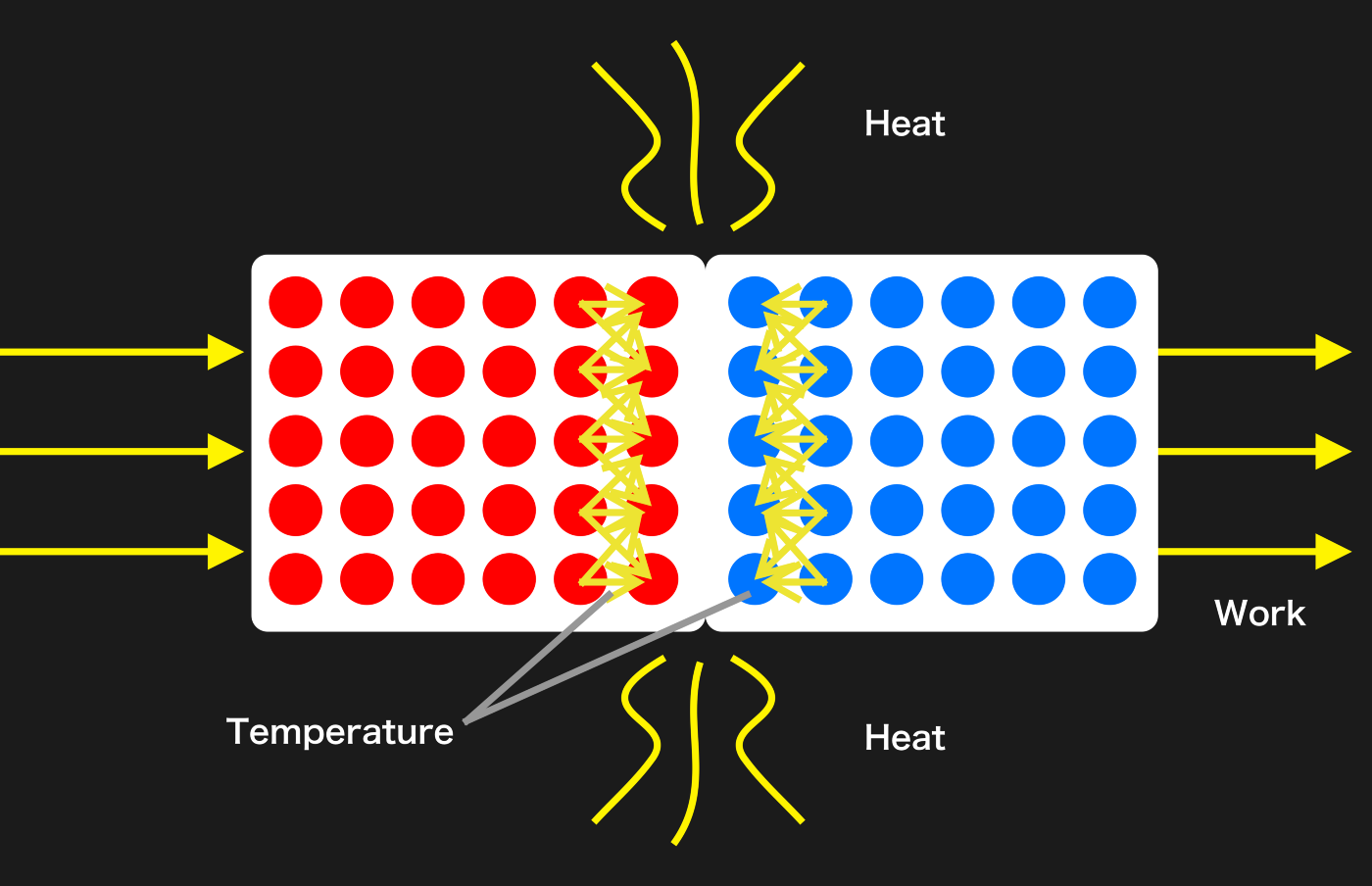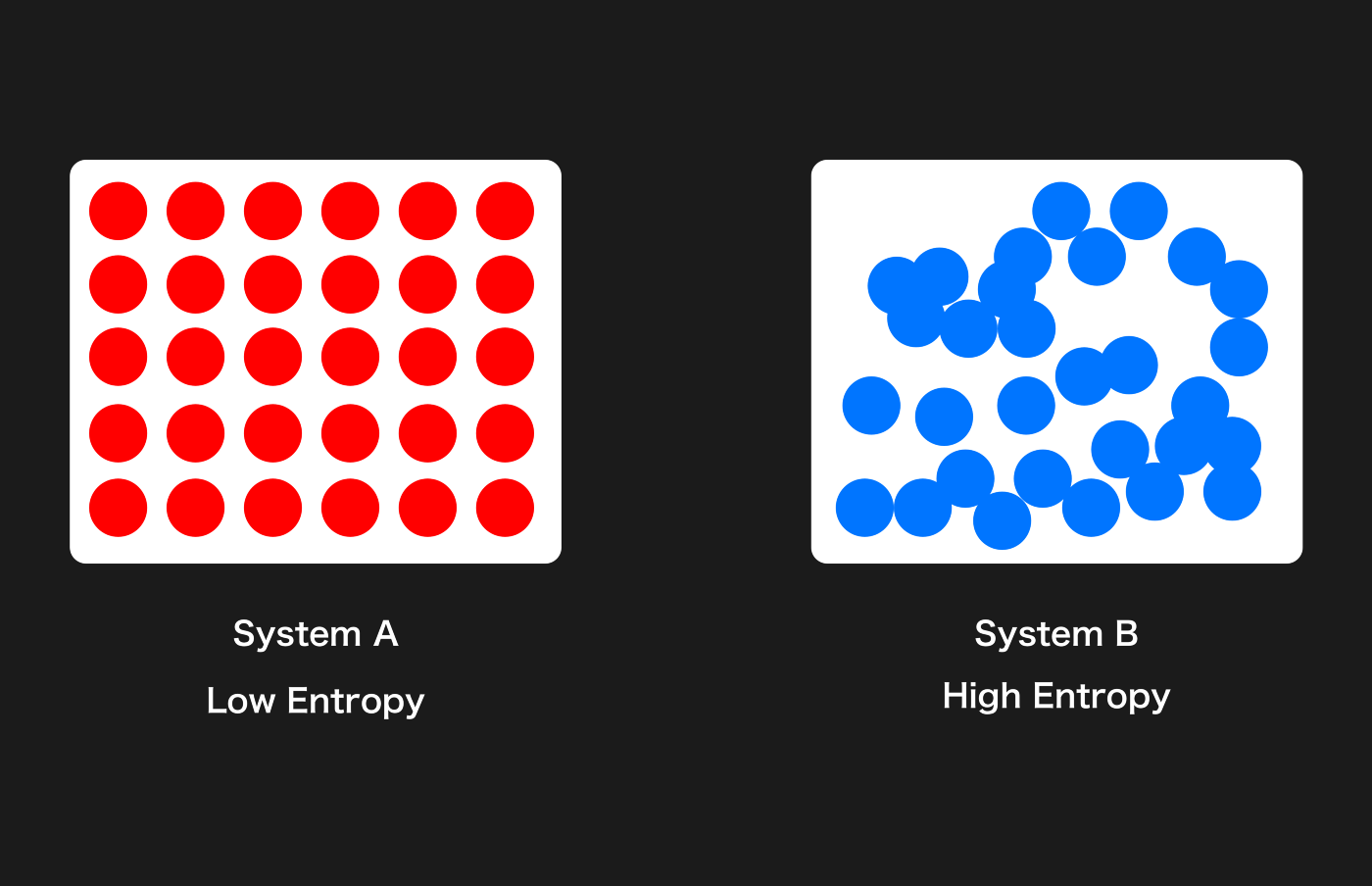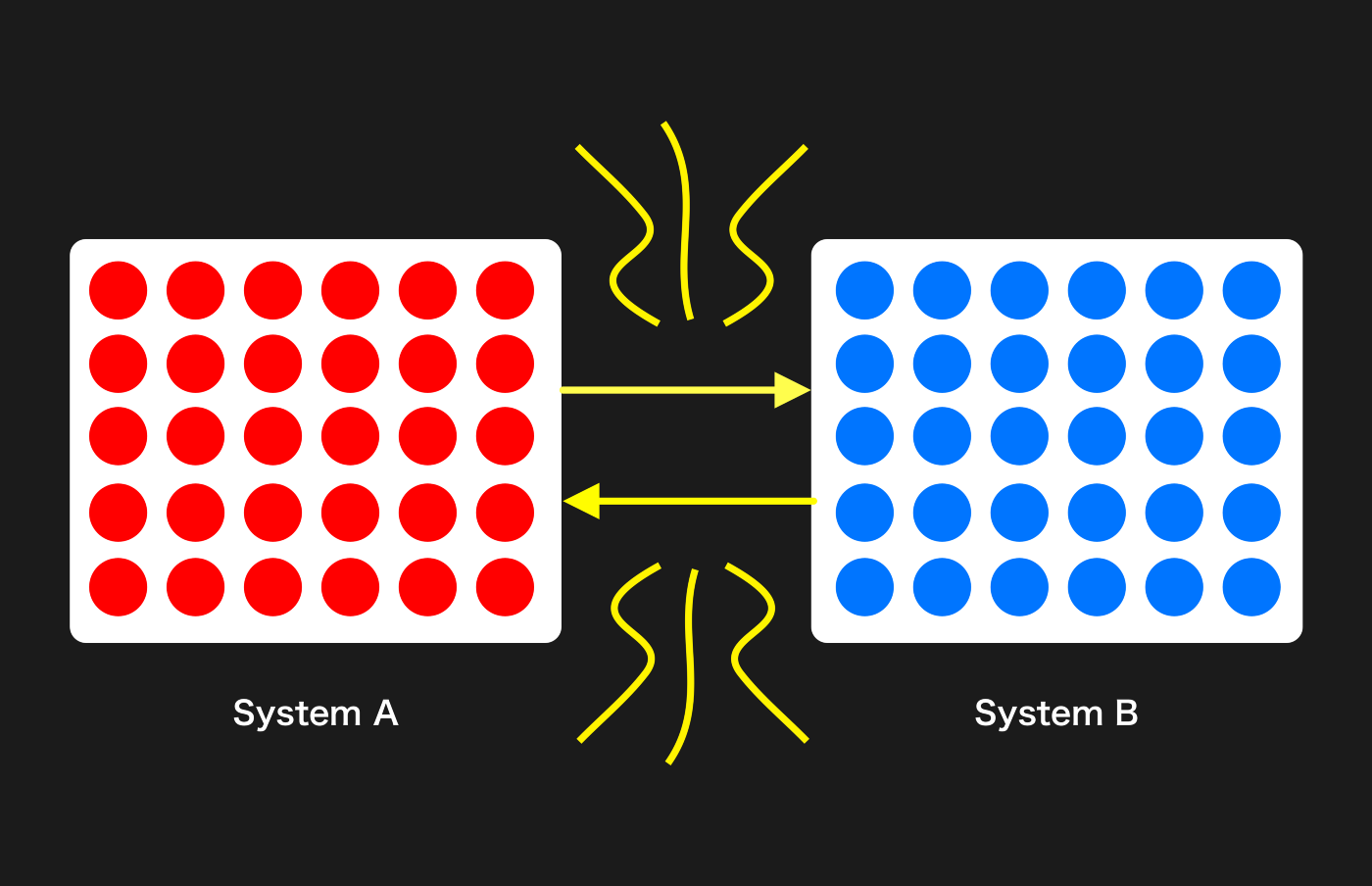When understood, some concepts can give the learner a completely new perspective of the world. Thermodynamics is one of them. This is a broad and generic subject that gives opportunity to parallel it with a lot of aspects in the world. Today we will parallel it with psychology, and more particularly to the human mind.
Thermodynamics is the science of heat, work, temperature and their relations to energy. Let’s decompose these:
- Heat: the energy transferred between two systems as a result of their differences in temperature.
- Work: the energy transferred between two systems in the form of physical displacement.
- Temperature: the measure of energy released from vibration of molecules in a system.
- Energy: the measure that a system will need to transfer to perform work and heat

So as of now, we know that thermodynamics refer to isolated systems interacting between each other. We know that energy is used by any system under different forms. When riding a bike, the chemical energy in your muscles (ATP) is converted to mechanical energy in the bike pedals, which will move the bike and heat in your muscles.
Therefore in this example, we clearly have a transfer of energy between two systems (person and bike), that results in heat and work (heat in the muscles, work in the movement of the bike). All this energy is not produced but converted. This is the first law of thermodynamics: energy cannot be produced or destroyed but can be converted to different forms. The amount of energy in the whole universe stays the same.
All this energy is manipulated by systems in the universe. Depending on its form, energy is more or less “useful” for a system. For example, energy as heat alone will not move the bike we are riding. This concept of energy quality is associated with the degree of disorder of the energy within the system. The measure of this disorder is called entropy.

Entropy is the measure of unavailable energy in a system, which reflects the amount of disorder of that energy. The more entropy, the more disordered and less useful this energy is. This is what the second law of thermodynamics states: the entropy in the entire universe as an isolated system will increase overtime.
However, we can observe that living beings on the planet are well structured, their entropy is low. This is because these systems are not isolated but open. They exchange energy with other systems in the universe to reduce their own entropy.
Still, the universe is a closed system. And as the second law of thermodynamics states it, all isolated systems tend towards disorder or high entropy. So these open systems when exchanging energy will increase the entropy of the whole universe.
Now, let’s dive into the theory of Mihaly Csikszentmihalyi on the order of the human mind. Mihaly says that “The normal state of the mind is chaos”. We order the mind with outside stimuli that grab our attention. Without these stimuli, the mind focuses on negative thoughts and pain. In other words, the human mind tends toward disorder, the same way an isolated system tends towards high entropy in thermodynamics. The human mind finds order by exchanging energy with external open systems, such as TV, Books or any other activity.
The paradox is that the human mind is an open system but behaves thermodynamically as an isolated system. This is what life forms are about: reducing their entropy by interacting with the outside world.
The reduction of entropy in the mind depends on the type of activity that stimulates it. The more mental energy that is used in the activity, the more structured the mind will be. Remember that there is a fixed amount of energy in the universe. The mental energy used in an activity will be allocated elsewhere in the universe. Social media and entertainment companies want your attention at its maximum simplicity. Hence, the mind will use low amounts of energy when being stimulated by these activities. Less energy will have less impact on the entropy in your mind, giving you an illusion of order. However, this degree of order is not as high as if you used greater quantities of energy in the activity.
To summarize, the mind is an open system that exchanges energy with outside systems to reduce its own entropy and therefore structure itself. The type of exchanges the mind does with these systems will vary the reduction of entropy.
